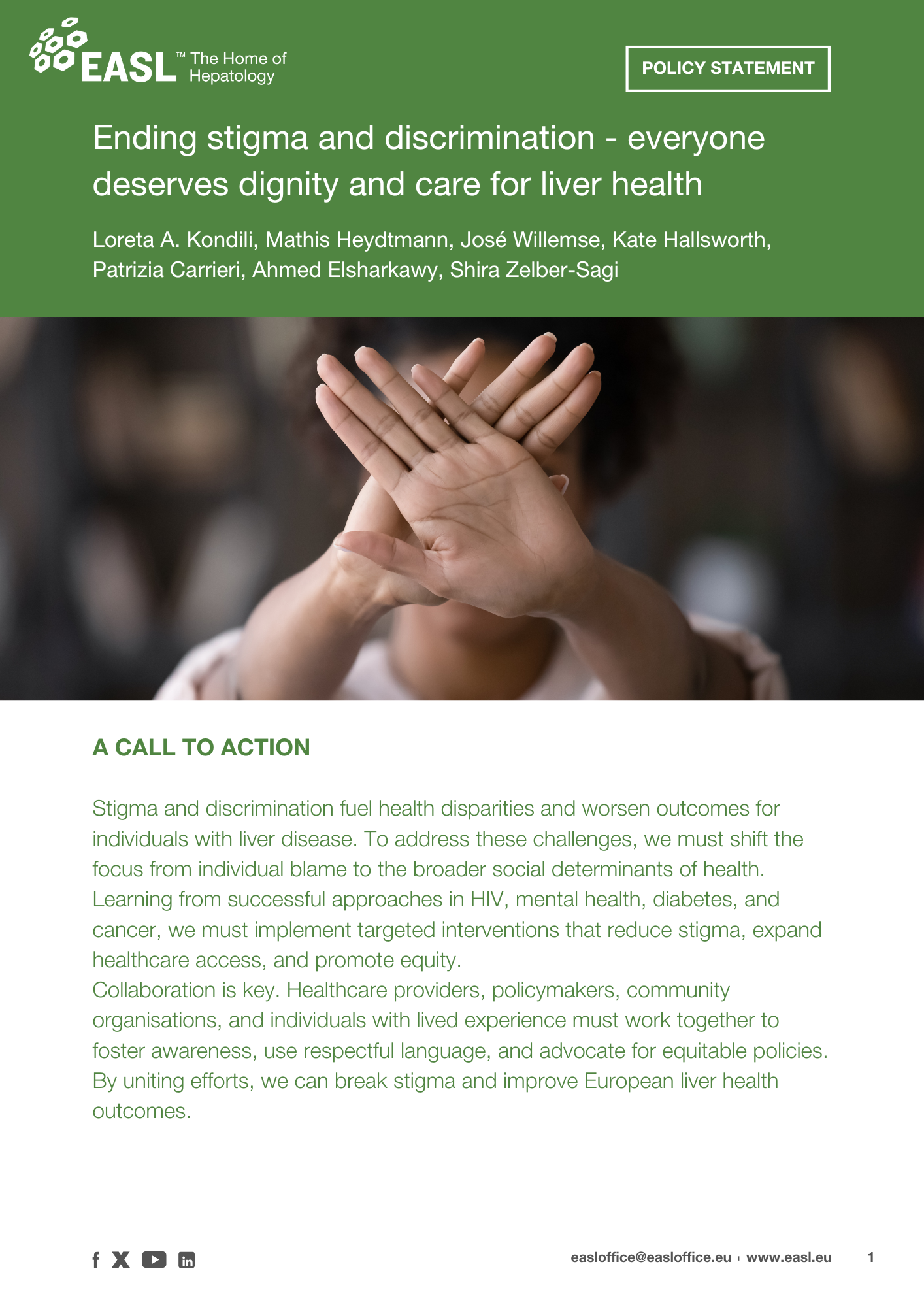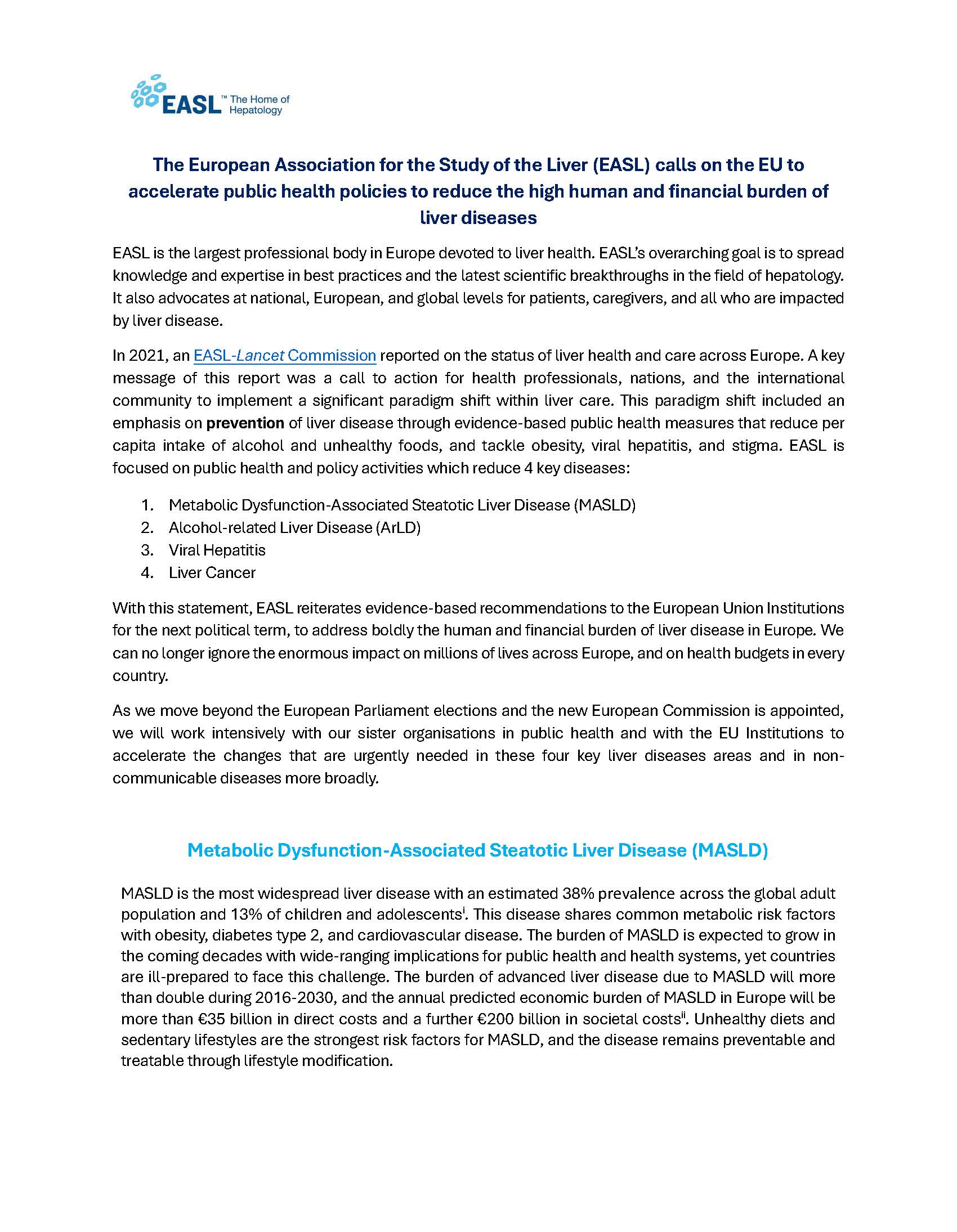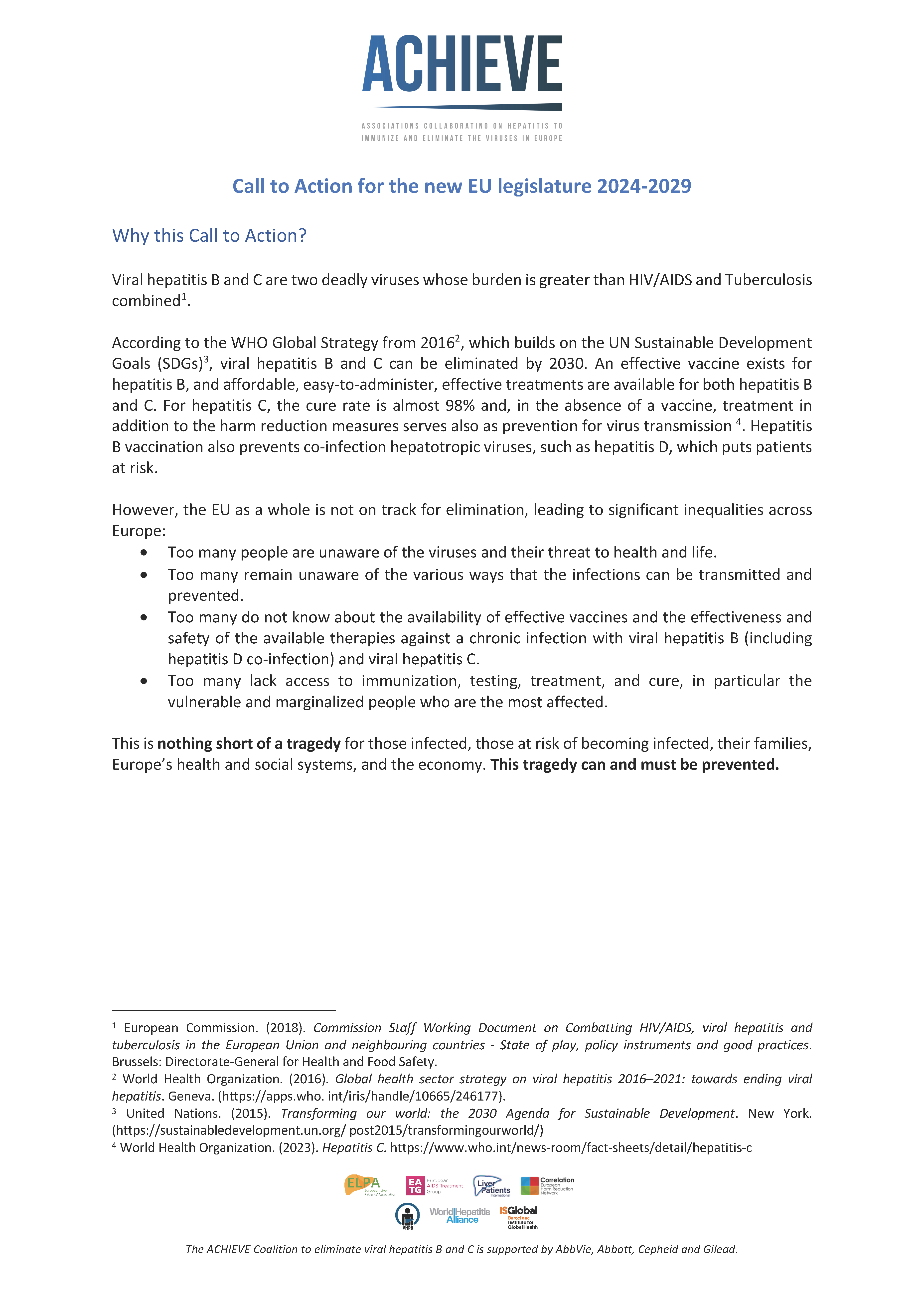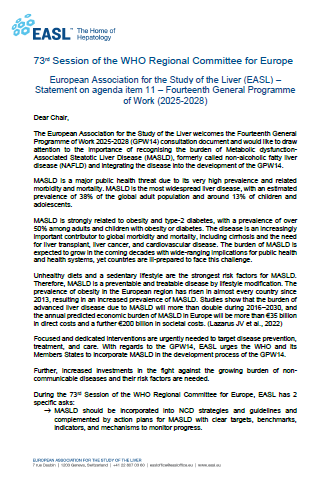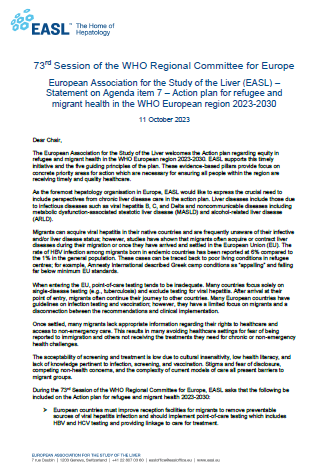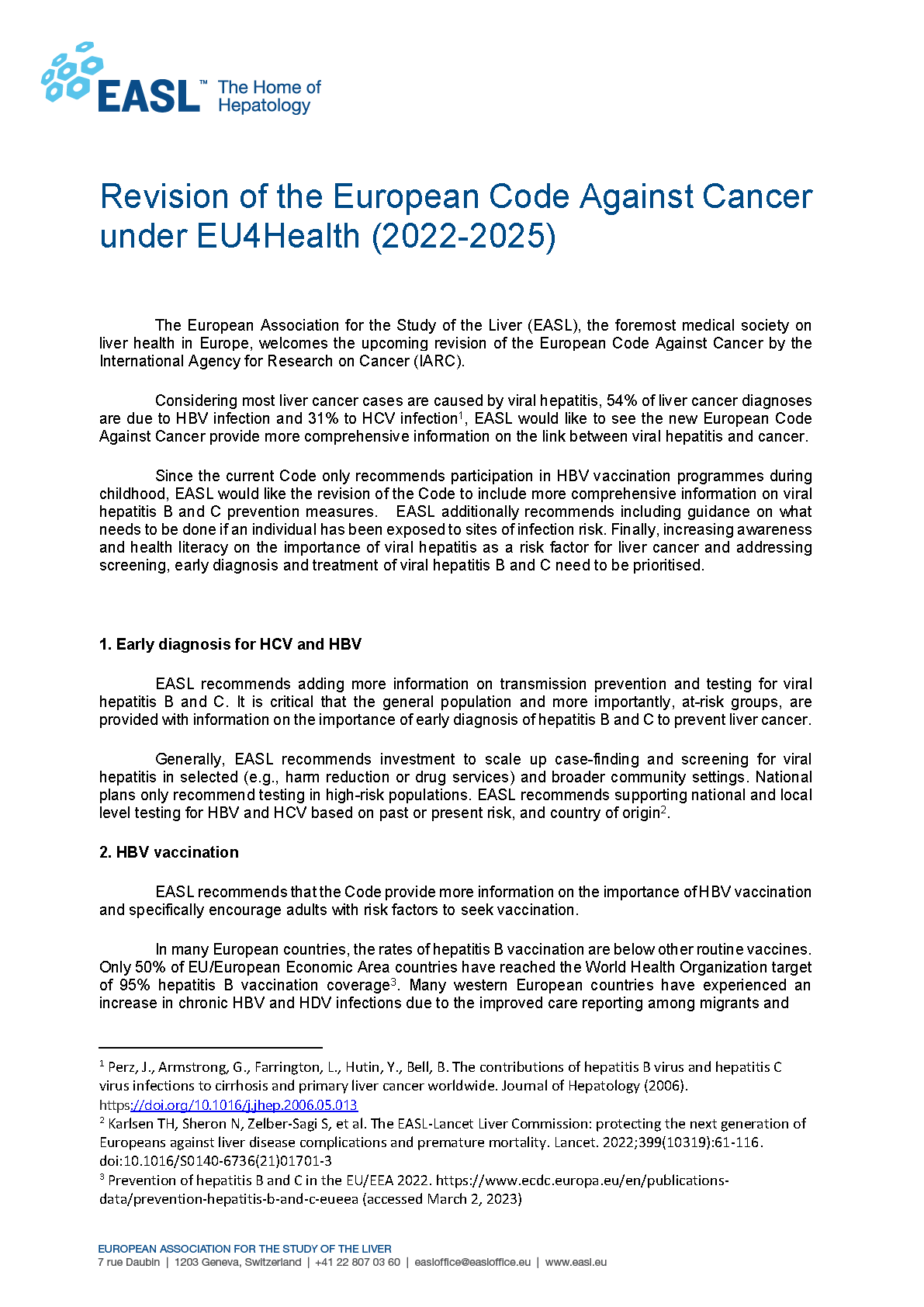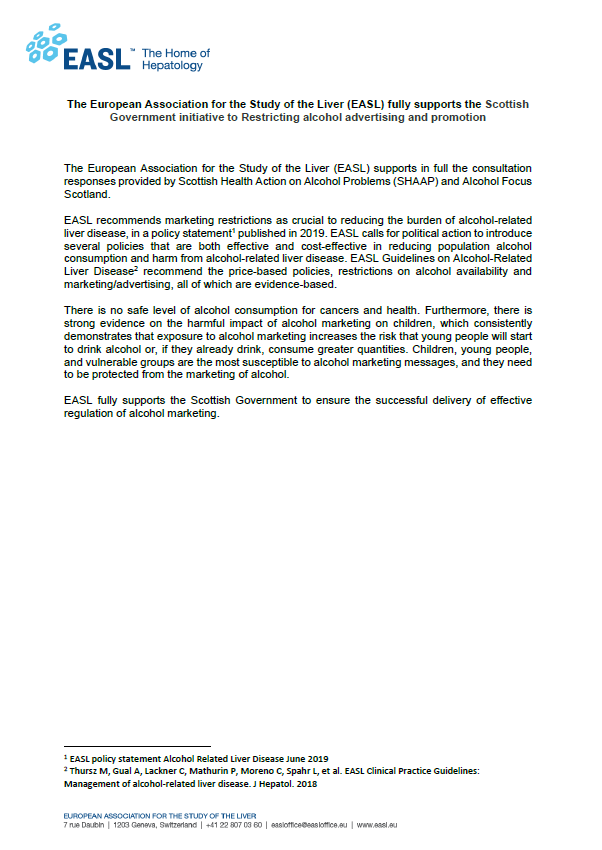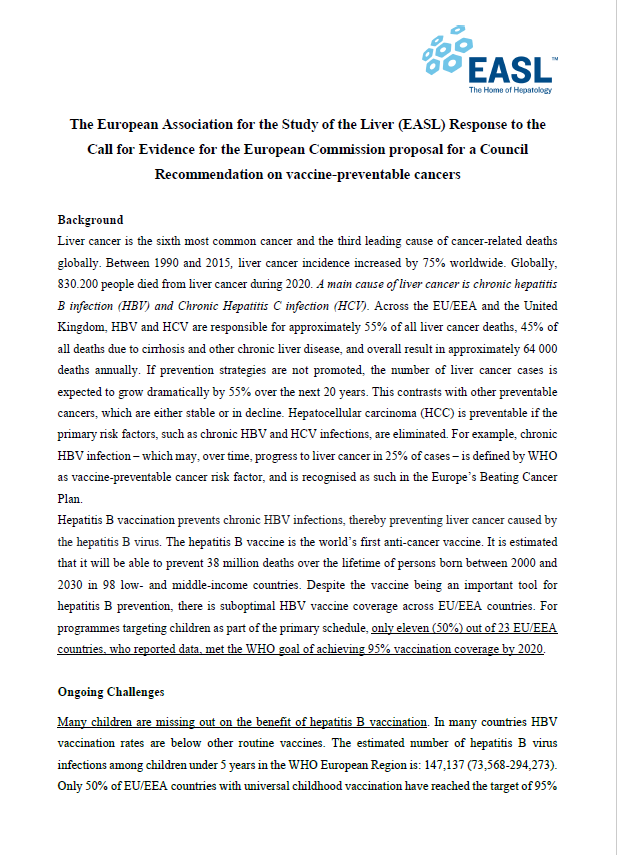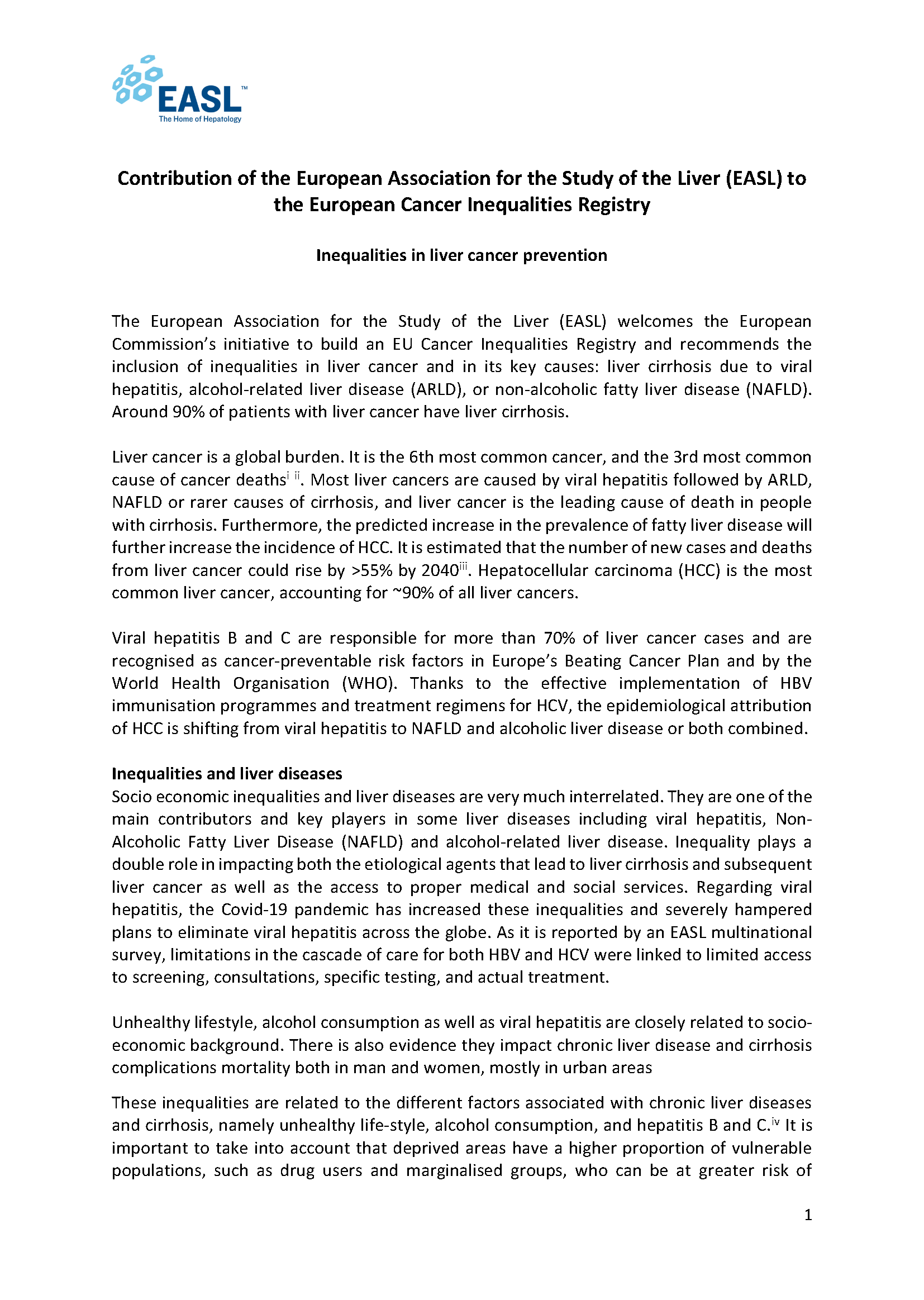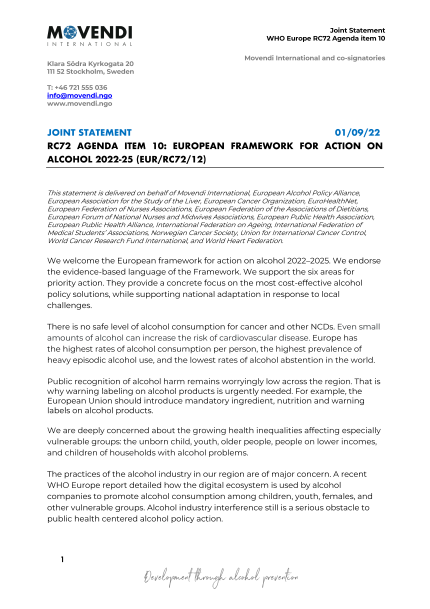EASL has published several reports on liver disease in Europe and is commissioning work on future publications.
Stigma and discrimination fuel health disparities and worsen outcomes for individuals with liver disease. To address these challenges, we must shift the focus from individual blame to the broader social determinants of health. Learning from successful approaches in HIV, mental health, diabetes, and cancer, we must implement targeted interventions that reduce stigma, expand healthcare access, and promote equity.
Full version of Policy Statement
With this statement, EASL reiterates evidence-based recommendations to the European Union Institutions for the next political term, to address boldly the human and financial burden of liver disease in Europe. We can no longer ignore the enormous impact on millions of lives across Europe, and on health budgets in every country.
Read MoreIn view of the new EU legislature 2024-2029, the ACHIEVE Coalition released a Call to Action as the EU as a whole is not on track for viral hepatitis elimination. The Call states the main obstacles to viral hepatitis B and C elimination as well as the existing EU mechanisms to help.
Read MoreThe European Association for the Study of the Liver welcomes the Fourteenth General Programme of Work 2025-2028 (GPW14) consultation document and would like to draw attention to the importance of recognising the burden of Metabolic dysfunction-Associated Steatotic Liver Disease (MASLD), formerly called non-alcoholic fatty liver disease (NAFLD) and integrating the disease into the development of…
Read MoreThe European Association for the Study of the Liver welcomes the Action plan regarding equity in refugee and migrant health in the WHO European region 2023-2030. EASL supports this timely initiative and the five guiding principles of the plan. These evidence-based pillars provide focus on concrete priority areas for action which are necessary for ensuring…
Read MoreConsidering most liver cancer cases are caused by viral hepatitis, 54% of liver cancer diagnoses are due to HBV infection and 31% to HCV infection1, EASL would like to see the new European Code Against Cancer provide more comprehensive information on the link between viral hepatitis and cancer.
Read MoreEASL supports in full the consultation responses provided by Scottish Health Action on Alcohol Problems (SHAAP) and Alcohol Focus Scotland to the Scottish Government initiative to Restricting alcohol advertising and promotion.
Read MoreEASL welcomes the initiative of the European Commission to propose actions to increase the uptake of vaccination against the Hepatitis B virus and human papillomaviruses. In its response, EASL calls on the EU Member States to prioritise key actions, especially to upscale HBV vaccination rates, by encouraging Member States to implement stronger national strategies and…
Read MoreThe European Association for the Study of the Liver (EASL) welcomes the European Commission’s initiative to build an EU Cancer Inequalities Registry and recommends the inclusion of inequalities in liver cancer and in its key causes: liver cirrhosis due to viral hepatitis, alcohol-related liver disease (ARLD), or non-alcoholic fatty liver disease (NAFLD). Around 90% of…
Read MoreEASL endorsed a Joint Statement, together with other 15 organisations. EASL welcomes the European framework for action on alcohol 2022–2025 and endorses the evidence-based language of the Framework and supports the six areas for priority action.
Read More

